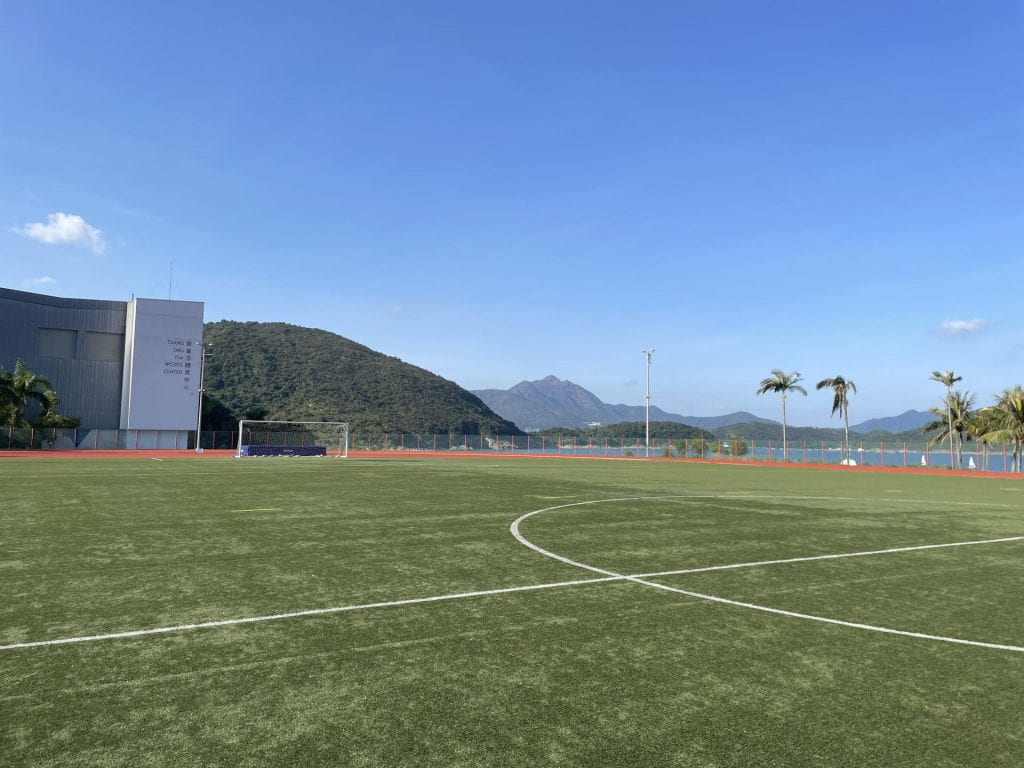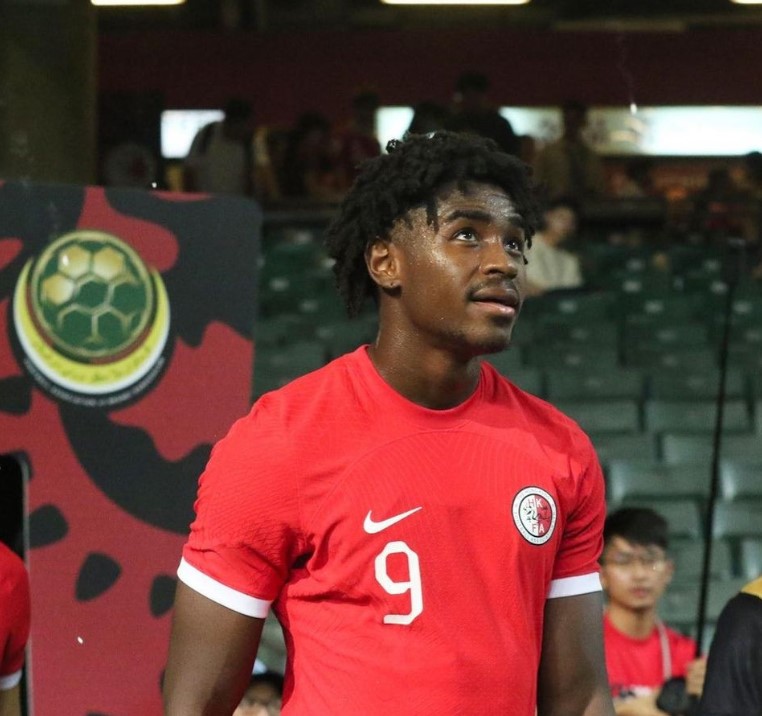Hong Kong is a finance man’s paradise and an athlete’s worst nightmare, the sporting infrastructure is lacking, and so is the Hong Kong results on the big sporting stage, if they want to change the bad results, something needs to change.

Written by Nicklas Dan Calvert and Oliver Kremmer Skammelsen
On the 11th of July 1966, something magical happened. The streets of London were gleaming, people crying next to their radios, fireworks everywhere and a nation, that had finally broken free from its seemingly eternal curse.
England had finally managed to win an international football tournament, and it was the biggest of them all. After a 4-2 win against West Germany football finally “came home” as the English would say. As Bobby Moore lifted the famous World Cup trophy, the nations erupted with tears of joy. They had been close, but never managed to win the big things, always so close, but yet so far for the football-mad nation. To this day, that World Cup remains their only international trophy, the curse is very much still alive. But winning is not the only thing that matters, for smaller nations, simply being on the big stage, at the big tournaments, is a victory in itself. Surrounding yourself with the big stars, play against the very best, is a big achievement for a small nation.
I few years before England’s triumph in 1966 a new football team was born. Hong Kong became a member of FIFA in 1954 and could finally qualify for the big tournaments and make a name for itself, before that Hong Kong only played in the Hong Kong-Macau Interport tournament in 1937 and other friendlies with Shanghai and other football teams not yet recognized by the footbaling government, FIFA.
And it makes sense, that Hong Kong would take an interest in football, with the influence on the English. In every colony England has had, some English sport has followed. Pakistan and India are among the greatest nations to play Cricket, while New Zealand and Australia are some of the best Rugby national teams in the world. Hong Kong does not do either of those sports, and it seemed like Football would be the sport, that Hong Kong would make its mark.
The perfect start
And it nearly started as a fairy tale. Hong Kong hosted the first team in Asia to host the AFC Asian Cup in 1956, with some help from the English, who had great experience in hosting big tournaments, Hong Kong was the perfect Nation to take charge. And what a tournament it was for Hong Kong. They suddenly found themselves in the Semi-finals in their first international tournament on home soil. Unfortunately for Hong Kong, they were beaten, but their tournament did not end there, they ended up winning their first medals as they finished in third place.
With a start like that the future surely seemed bright for Hong Kong, they followed up their strong start with multiple qualifications for the Asian Cup and only missed 1 out of four tournaments. It culminated in 1964 when they were once again out for silverware. Once again they found themselves in the semi-finals, and once again had to leave the field as losers.
The struggle and scandals
People did not know back then, but Hong Kong’s first international tournament would be their best result. Since 1964 Hong Kong has not qualified for an international tournament. The big, bright lights have been shut down, and the gleam and glamour packed away in grandmother and grandfather’s basement. Hong Kong is not the biggest country, but it does have resources and enough people to compete. In the time that Hong Kong has not been able to qualify for the Asian Cup, only competing against other teams in the region, other Asian countries have done it all. North Korea has qualified for not just the Asian Cup, but the world cup twice, since Hong Kong last was at a competitive tournament, and other smaller countries with smaller budgets have as well. Kuwait miraculously made the World Cup in 1982, without the big facilities and budgets, that Hong Kong has.
The national team of Hong Kong did make the international headlines during the 1998 World Cup Asian qualifiers as it was hit by a match-fixing scandal that involved former Sing Tao attacker Chan Tsz-Kong who was found guilty and jailed for a year after he bribed players to throw and lose a match against Thailand. Shame has followed the national team of Hong Kong since its strong start, and they are currently competing with teams like Bhutan and are worse off than North Korea. But what seems to be the problem with Hong Kong?
Infrastructure
Hong Kong is known for its beaming lights, the tall buildings packed very closely together and being a densely packed city. There isn’t much room for football pitches where most people live in the inner city. Hong Kong has 54 full-size football pitches for its 7,4 million inhabitants, The capital of Denmark, Copenhagen, has 200 in comparison.
But football pitches are not impossible to find, and at The Hong Kong University of Science and Technology they take pride in their sports facilities.
The head of The Hong Kong University of Science and Technology Sports Development Center Justin LI thinks he knows why football in Hong Kong is not as popular as other sports
“We see, that when someone performs well in sports, people go and support them more, and the Football national team here has not been successful in a very long time, whereas people here care a lot more about fencing, because Hong Kong recently had a guy winning Olympic gold in Fencing”
At The Hong Kong University of Science and Technology Sports Development Center, the culture is more important than winning. Justin LI says that promoting a healthy culture around sports is the goal of the centre and that the youth studies too much, and they can get their brake with sporting activities at the campus.
Justin Li emphasises, that there are not enough facilities in Hong Kong for sports in general, and he would love some help
“If you want Hong Kong to perform better on the international stage in any sport, you need to put more money into the facilities, we need more facilities and better facilities”

Photo: Oliver Kremmer Skammelsen
The future
The facilities in Hong Kong are lacking and when you really want to make it, sometimes you have to take a chance. Hong Kong international striker Michael Udebuluzor knew from a young age, that football was his calling. He played football every day as a young kid and dreamed about making it to the big leagues, but he also knew, that it would be very hard to realise that dream in Hong Kong.
At age 15 he packed his bags, left the comfortable home and went to Germany to pursue a career as a professional football player
“I did not tell my mom or dad when I left, they would have never let me go, but when I looked at the league in Hong Kong, it just isn’t that strong, and not many people make it out of the league, they maybe go to China, but I want to play with the very best, and that is why I left”
At age 19 Michael Udebuluzor is a professional football player and plays for the Ingolstadt youth team.
Even though the number of professional footballers in Hong Kong has been decreasing over the last 15 years, Michael Udebuluzor does not think that going abroad to chase the dream is the right move for everyone, he notes that many people in Hong Kong take more pride in their school work rather than sporting results, and that you have to be committed 100% to the sport if you want to make it.

Photo: Private
Michael Udebuluzor is hungry for success, both on a personal level and on the international stage. He and the rest of the national team have qualified for the 2024 AFC Asian Cup for the first time since 1964, and Michael wants to win, he has scored twice in 5 games for the national team and is one of its most exciting players
“I just want to take things one game at a time, I think that we can improve, and I always have the mindset, that we can win every game. This team is special, and I think we can go far and excite the fans,” Michael Udebuluzor concludes.
It is about taking part
In the heart of Wan Chai a small community has grown larger and larger over the years. Southorn Playground is the home of the mini-football league, where more senior citizens play futsal football.
Futsal is played on a smaller pitch and you play seven against seven and a hard surface, but what is it that has made futsal so popular in Hong Kong?
Every Saturday Liu Cheng suits up and heads towards Southern Playground in Wan Chai. And when he arrives it’s all smiles and giggles. He and his team play Saturday and Wednesday against other teams
“I started playing football with my friends here, even me at 55 can still play and have fun, we really want to win when we play, but we come for the community,” Liu Cheng says while laughing before he takes a sip of his beer.
He and his teammates had just finished their game, 1-1 it ended. But after the final whistle, football was the least important thing in the world. A case of beer was opened in the stand and suddenly the night began. laughter and joy filled the arena, and they cheered for the next team that was playing while making fun of each other, like best friends at recess in school.
“I hope I can play until I am 80 because this is what I look forward to most during the week, to just play some football and see these guys.” Liu Cheng ends.